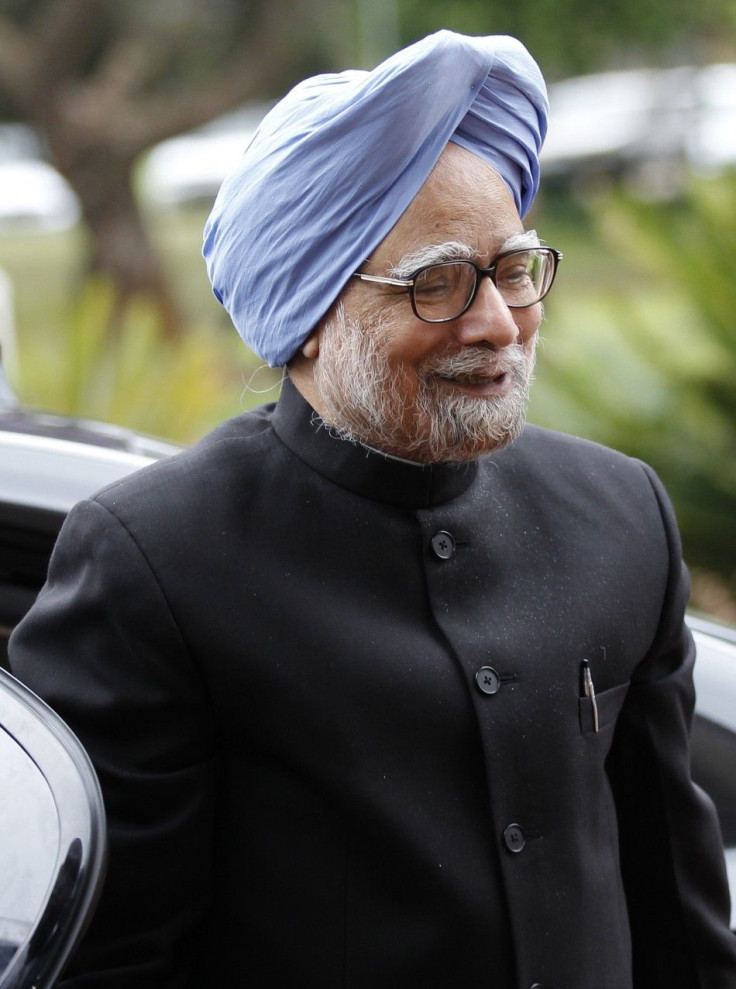India Coal Scam: Court Wants Statement Of Former Prime Minister Manmohan Singh Recorded

In the latest turn of events in a long-drawn multi-billion dollar corruption scandal in India, a court in New Delhi on Tuesday asked the country’s Central Bureau of Investigation (CBI) to record the statement of former Prime Minister Manmohan Singh, under whose direct watch much of the irregularities allegedly took place.
The alleged scam in the allocation of coalfields for captive use to power, steel and cement manufacturers saw as many as 214 coalfields given out to private and state-controlled companies at virtually no upfront cost on a first-come, first-served basis between 1993 and 2010. A bulk of these coalfields was allocated during Singh's tenure as prime minister. Now, India plans to reallocate 204 of these coalfields, which had been taken back following a Supreme Court order in September that declared the earlier allocations illegal.
Tuesday’s order, pronounced by a special CBI court dealing exclusively with coalfield matters, is in relation to one specific case, which involves the allocation of a coalfield to aluminum maker Hindalco Industries Ltd, which is part of the Aditya Birla Group conglomerate. Singh was directly in charge of the coal ministry when the allocation was conducted. The then Coal Secretary P. C. Parakh is also implicated in the matter.
On Oct. 15, 2013, India's CBI had booked Aditya Birla group chief Kumar Mangalam Birla, and Parakh, for “criminal conspiracy” in the case. Later, in August this year, the CBI had sought to close the case against Birla and Parakh and had filed a closure report, which the court rejected on Tuesday.
“I am of the considered opinion that before the matter is examined further as to what offence, if any, stands committed or by whom the same has been committed, it will be appropriate that the then Minister of Coal (referring to Singh) be first examined qua various aspects of the matter and also in light of the observations made by this Court in the present order,” the judge said in his order reviewed by International Business Times. “I also find that some officers who were working in the PMO (Prime Minister’s Office) at that time and were concerned in one respect or the other with the allocation process in question were either not examined or were not properly examined,” the judge noted.
While this order is unlikely to result in a formal probe against the former prime minister, it certainly makes him accountable in the much publicized case, one of several high-profile corruption scandals that hit his government and finally led to its ouster in May.
A Hindalco spokesperson declined comment on the matter. In April this year, in a book, Parakh had said that Singh’s authority as prime minister had been “undermined” by his own colleagues, former Coal Minister Shibu Soren and junior coal minister Dasari Narayana Rao. Parakh had said that his proposal to adopt a policy of open competitive bidding for auctioning coalfields for captive use was “killed” by Soren, the then coal minister, even after Singh had approved it, according to Mint, a local newspaper.
In September 2012, the country’s government auditor, the Comptroller and Auditor General, had said in a report that since the coalfields were given away without an auction, companies got away with “windfall gains” to the tune of 1.86 trillion rupees (nearly $30 billion). Following this, a CBI probe was ordered, which the Supreme Court later began monitoring.
Singh, an Oxford-educated economist and an academic, who was India’s federal bank chief in the 1980s and later the finance minister, was picked to be the country’s prime minister in 2004 by Congress party chief Sonia Gandhi, which led to a coalition that remained in power until May this year. Known for his clean image, Singh is credited with having scripted India’s economic liberalization, which began in 1991.
© Copyright IBTimes 2024. All rights reserved.











